Find Help
More Items From Ergsy search
-
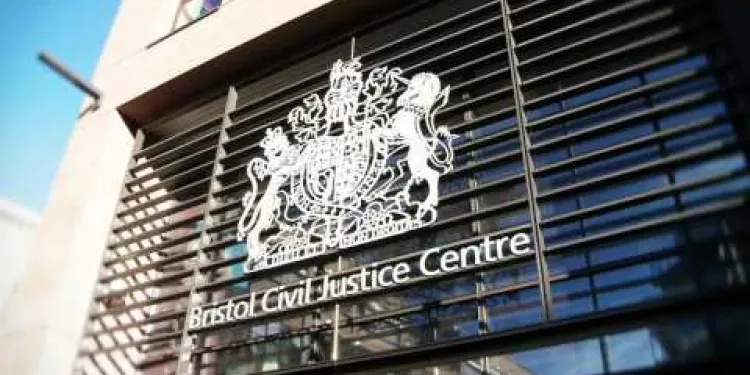
The Family Court without a Lawyer - Video 1 of 3
Relevance: 100%
-

The Family Court without a Lawyer
Relevance: 95%
-
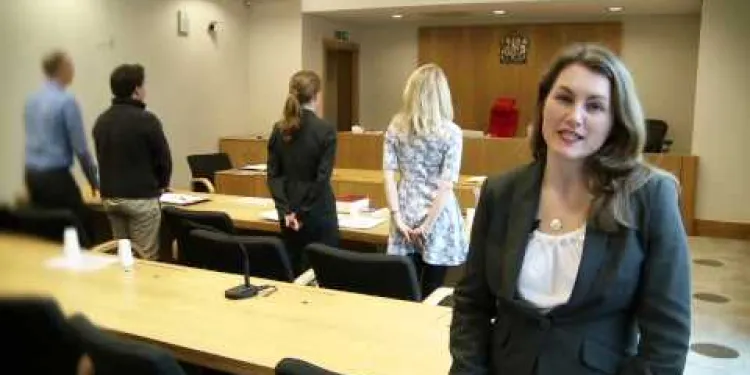
The Family Court without a Lawyer - Video 2 of 3
Relevance: 92%
-

The Family Court without a Lawyer - Video 3 of 3
Relevance: 89%
-
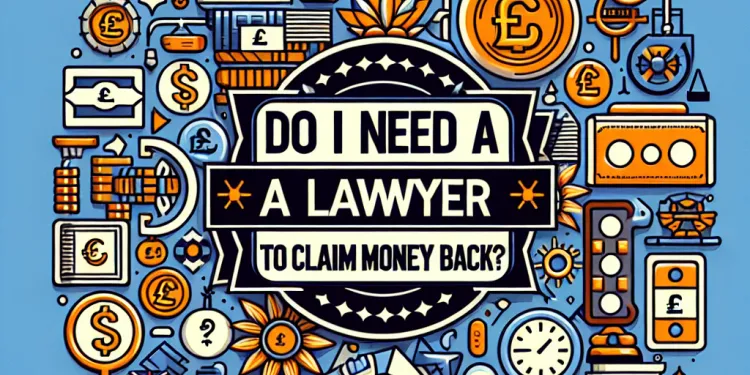
Do I need a lawyer to claim money back?
Relevance: 60%
-

What are the changes to Family Court Law in 2026?
Relevance: 55%
-
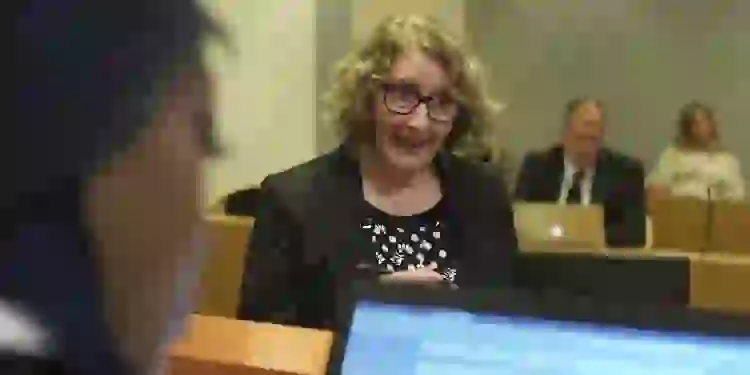
Magistrates in the Family Court: A Public Law Case
Relevance: 55%
-

Magistrates in the Family Court: A Private Law Case
Relevance: 54%
-
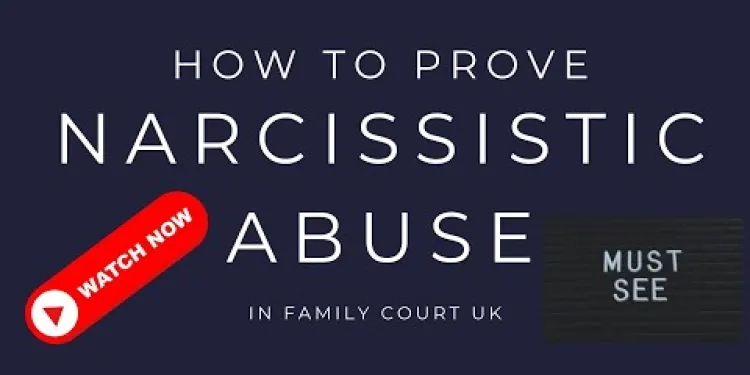
How To Prove Narcissistic Abuse In Family Court UK
Relevance: 53%
-

How to represent yourself in family court in England and Wales
Relevance: 53%
-

Can legal representation speed up the process of a case coming to court?
Relevance: 52%
-

Have the rules for changing a child's name in family court changed in 2026?
Relevance: 51%
-

I'm Getting a Divorce | Tips From a Divorce Lawyer
Relevance: 51%
-

Are there modifications to legal aid access in family court for 2026?
Relevance: 50%
-

What role do lawyers play in drug offence cases?
Relevance: 50%
-

What digital services have been introduced in family courts in 2026?
Relevance: 49%
-

What should I do if I can't afford a lawyer for the eviction process?
Relevance: 48%
-

What are the new protocols for domestic violence cases in family court in 2026?
Relevance: 48%
-

Why might a court date be delayed?
Relevance: 46%
-

Have the rights of same-sex couples been affected by the 2026 family court changes?
Relevance: 46%
-

Does the Attorney General in the UK have to be a lawyer?
Relevance: 44%
-

What is the status of joint custody provisions in the 2026 family court updates?
Relevance: 44%
-

How have prenup agreements been affected by the 2026 family court changes?
Relevance: 44%
-

Are there any changes to surrogacy arrangements under the 2026 family court law?
Relevance: 44%
-

Can I appeal a court's eviction decision?
Relevance: 44%
-

How are parental rights addressed differently in the 2026 family court updates?
Relevance: 43%
-

Does the location of the court affect case timing?
Relevance: 42%
-
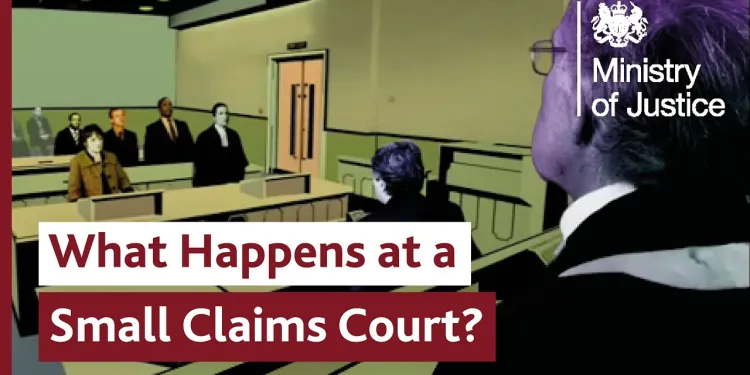
What Happens at Small Claims Court? Making a Court Claim for Money
Relevance: 41%
-

Court of Protection
Relevance: 40%
-

What are the key changes to family court law in 2026?
Relevance: 40%
-
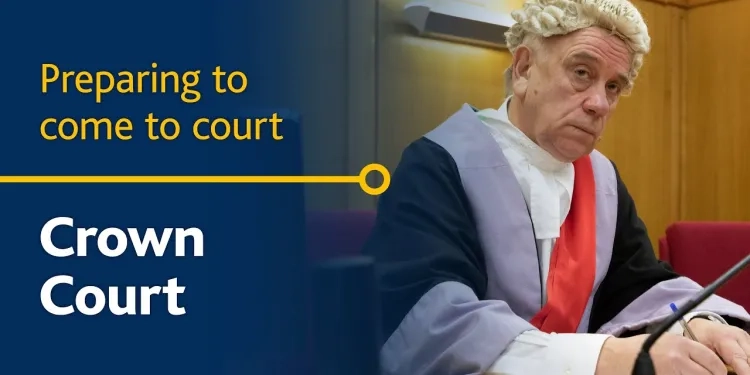
Crown Court - Preparing to come to court
Relevance: 40%
-

The Crown Court
Relevance: 39%
-

When should you consult a lawyer about a boundary dispute?
Relevance: 38%
-

How long does it take for a case to come to court?
Relevance: 37%
-

How do court holidays affect the timeline for a case to come to court?
Relevance: 37%
-

How does the type of case impact the court schedule?
Relevance: 37%
-

Child Care Proceedings | Family Law
Relevance: 36%
-

What impact can unexpected events have on the court scheduling of a case?
Relevance: 36%
-

How quickly can a criminal case come to court?
Relevance: 33%
-

Is there a standard minimum or maximum time for a case to reach court?
Relevance: 32%
The Family Court without a Lawyer - Video 3 of 3
Introduction to Representing Yourself in the Family Court
In the United Kingdom, family court proceedings can often be complex and emotionally charged. For various reasons, including financial constraints, some individuals choose to represent themselves in these cases. This article provides insights and guidance based on the third video of a series focused on navigating the family court without a lawyer.
Preparing Your Case
Preparation is key when representing yourself in family court. Gather all necessary documents, such as financial statements, communication records, and any relevant correspondence. Make sure you understand the legal issues at hand and familiarize yourself with court procedures. Write a clear, concise summary of your case to present to the judge.
Understanding Court Etiquette and Procedures
Knowing how to behave and what to expect during court proceedings is crucial. Attend court on time, dress appropriately, and address the judge respectfully. Familiarize yourself with the structure of the hearing, including key steps like presenting evidence, cross-examining witnesses, and making closing statements. Understanding these elements will help you present your case more effectively.
Presenting Your Evidence
Evidence is vital in family court cases. Prepare any physical evidence and verify its authenticity. Be ready to explain how each piece of evidence supports your case. Practice presenting your evidence clearly and succinctly. Remember, the quality and relevance of your evidence can significantly impact the judge’s decision.
Communicating Effectively
Effective communication can make a significant difference in family court. Stay calm and composed, even during emotional moments. Listen carefully to the judge and the opposing party, and respond thoughtfully. Avoid interrupting others and focus on articulating your points clearly and logically. Aim to demonstrate reasonableness and a willingness to find amicable solutions.
Seeking Additional Support
Even without formal legal representation, you are not alone. Numerous resources are available to help you navigate the family court process. Consider seeking assistance from Citizens Advice, legal aid services, or online support groups. These resources can offer valuable guidance and practical advice to strengthen your case.
Conclusion
Representing yourself in family court is undoubtedly challenging but not insurmountable. With thorough preparation, an understanding of court procedures, and effective communication, you can present your case confidently. Remember to utilize available resources and stay informed throughout the process. This final video in the series aims to empower you with the knowledge and skills necessary to navigate the family court successfully.
The Family Court without a Lawyer - Video 3 of 3
Introduction to Representing Yourself in the Family Court
Family court in the UK can be difficult and emotional. Some people choose to go to court without a lawyer. This might be because they want to save money. This text helps you learn how to go to family court by yourself. It is about the third video in a series that shows how to do this.
Preparing Your Case
Getting ready is very important. You need to collect important papers like money details and letters. You should know what legal things are involved and how the court works. Write a short, clear story of your case to tell the judge.
Understanding Court Etiquette and Procedures
Knowing how to act in court is important. Be on time, dress nicely, and speak politely to the judge. Learn what happens in a hearing, like showing evidence and talking to witnesses. This will help you present your case better.
Presenting Your Evidence
Evidence is very important in family court. Have your evidence ready and know why it helps your case. Practice showing your evidence clearly. Good and relevant evidence can help the judge make a decision in your favor.
Communicating Effectively
Good communication is key in family court. Stay calm, even if things get emotional. Listen carefully to others and talk clearly. Don’t interrupt. Try to show you want fair and friendly solutions.
Seeking Additional Support
You do not have to do this alone. There are many places to get help. Try talking to Citizens Advice, legal aid, or online support groups. They can give you good advice to help with your case.
Conclusion
Going to family court by yourself can be hard, but you can do it. If you prepare well, understand the court, and communicate clearly, you can present your case with confidence. Use the help that is available and keep learning as you go. This last video is here to give you the skills and knowledge you need to succeed in family court.
Frequently Asked Questions
What are the primary responsibilities of the Family Court?
The Family Court handles cases related to family matters such as divorce, child custody, child support, domestic violence, and adoption.
Can I represent myself in Family Court?
Yes, you can represent yourself in Family Court, a process known as 'litigant in person'. However, it is recommended to seek legal advice as family law can be complex.
How do I apply for a divorce in the UK?
To apply for a divorce, you need to fill out a divorce application form (Form D8) and submit it to the court, along with the required fee.
What factors does the court consider when deciding child custody?
The court considers the best interests of the child, including their health, welfare, and the ability of each parent to meet the child's needs.
What is a Child Arrangements Order?
A Child Arrangements Order outlines the living arrangements of a child, including who they live with, spend time with, and have contact with.
How can I obtain a Child Arrangements Order?
You need to complete the C100 form and submit it to your local Family Court. You may also need to attend a Mediation Information and Assessment Meeting (MIAM).
What is a Financial Remedy Order?
A Financial Remedy Order is a court order that deals with the financial issues between divorcing couples or those ending a civil partnership.
How do I enforce a Family Court order?
If a Family Court order is not being followed, you can apply to the court to enforce it. You may need to fill out a specific enforcement application form depending on the order.
What is domestic violence, and can the Family Court help?
Domestic violence includes physical, emotional, financial, and sexual abuse. The Family Court can provide protective orders such as Non-Molestation Orders and Occupation Orders.
What is a Non-Molestation Order?
A Non-Molestation Order is a protective court order that prevents someone from using or threatening violence against you or your child, and from intimidating, harassing, or pestering you.
How can I apply for a Non-Molestation Order?
You can apply for a Non-Molestation Order by completing Form FL401 and submitting it to the Family Court.
What is the role of CAFCASS in Family Court proceedings?
CAFCASS, the Children and Family Court Advisory and Support Service, provides support and safeguards the welfare of children involved in Family Court proceedings.
What is a MIAM, and when is it required?
A Mediation Information and Assessment Meeting (MIAM) is a meeting to see if mediation can resolve your issues without going to court. It is usually required before applying to the court for a Child Arrangements Order.
How much does it cost to apply for a divorce?
As of 2023, the fee to apply for a divorce in the UK is £593. Fee waivers or reductions may be available for those on a low income or receiving certain benefits.
Can the Family Court handle matters related to unmarried couples?
Yes, the Family Court can handle matters related to unmarried couples, including issues of child custody, child support, and property rights.
What does the Family Court do?
The Family Court helps with family problems. This includes things like parents splitting up (divorce), deciding who will take care of the kids (child custody), money to help take care of kids (child support), family fights that need stopping (domestic violence), and finding new families for kids (adoption).
Can I go to Family Court without a Lawyer?
Yes, you can go to Family Court without a lawyer. This is called being a "Litigant in Person".
If you choose to do this, here are some tips to help you:
- Ask someone you trust for help understanding your papers.
- Use online guides for family court steps. They can be helpful.
- Write down your questions and bring them to court.
- Practice what you want to say before you go.
- Speak slowly and clearly in court.
Remember, if things feel too hard, you can ask the court for advice or find a support service that can help you.
You can speak for yourself in Family Court. This is called being a 'litigant in person'.
But, it is a good idea to talk to a lawyer because family law can be tricky.
Here are some tips to help you:
- Ask someone you trust to help you understand what you need to do.
- Use pictures or diagrams to help you remember things.
- Take notes to keep track of important information.
- Use clear and simple words when talking or writing.
- Look for online videos or guides about going to Family Court.
How can I get a divorce in the UK?
Getting a divorce means ending a marriage legally. Here is how you can do it:
- Talk to someone you trust. They can help you understand what a divorce means.
- Visit the government website or a local advice center. They have forms to fill out.
- Fill out the forms. You might need help from a friend or a lawyer.
- Send the forms to the court. The address will be on the form.
- The court will read your forms. They will decide if you can get a divorce.
Remember, you can ask for help if you feel confused. Friends, family, or professionals can support you.
If you want to get a divorce, you have to do these things:
1. Fill out a form called Form D8. This form tells the court you want a divorce.
2. Give the form and some money to the court. This money is called a fee.
If you need help, you can ask a friend or family member. You can also use a computer to look up "Form D8" for more information.
What does the court look at when deciding who takes care of a child?
The court looks at different things to decide who will take care of a child. Here are some important things they think about:
- The child's best interests: What is best for the child?
- Parent's ability to care: Can the parent take good care of the child?
- Child's wishes: If the child is old enough, what do they want?
- Home environment: Is the home a safe and happy place?
- Family relationships: Who does the child have strong bonds with?
Using tools like visual planners or talking to a counselor can help. This makes it easier to understand and talk about what is best for the child.
The court wants what is best for the child. They think about the child's health and happiness. They also look at how well each parent can take care of the child.
What is a Child Arrangements Order?
A Child Arrangements Order is a rule from a court. It tells where a child lives and who they see.
It helps decide:
- Who the child lives with
- When the child sees other family members, like mum or dad
If you need help to understand this better, you can:
- Ask someone you trust to explain it
- Use pictures to help you understand
A Child Arrangements Order is a plan about where a child will live. It says who the child will live with, who they will visit, and who they can talk to.
How can I get a Child Arrangements Order?
You need to fill out a form called C100 and send it to your local Family Court. You might also need to go to a meeting called Mediation Information and Assessment Meeting (MIAM).
What is a Financial Remedy Order?
A Financial Remedy Order is a decision made by a court about money issues after a divorce or separation. It helps to decide how money, property, and other things are shared between the people who are separating.
Here is how you can understand it better:
- A judge in court makes a plan for sharing money and things.
- This happens when two people who were married or together stop living together.
- This helps make sure both people get a fair share of money and other things.
Do you need help reading and understanding? Try these:
- Ask a friend or family member to explain it to you.
- Use pictures or drawings to see how things are shared.
- Listen to audio materials about money sharing after divorce or separation.
A Financial Remedy Order is a special rule from the court. It helps to sort out money and things between two people who are getting divorced or ending a civil partnership.
Here are some tips that might help:
- Ask someone you trust to explain things if they seem hard.
- Break down the information into small parts to make it easier to understand.
- Use pictures or drawings to help you remember what it means.
- Listen to recordings if reading is tough.
How can I make sure a Family Court order is followed?
If someone is not following a Family Court order, you can ask the court to make sure it is followed. You might need to fill out a special form for this.
What is domestic violence, and can the Family Court help?
What is domestic violence?
Domestic violence is when someone in your home hurts you or makes you feel afraid. It might be a parent, partner, or someone else in your family.
How can the Family Court help?
The Family Court is a special place that helps families. If someone is hurting you, the court can help keep you safe. They can make rules to protect you and tell the person to stop hurting you.
What can you do?
If you are scared or hurt, tell a trusted adult, like a teacher or a friend's parent. You can also call a helpline for help. They will listen to you and help you feel safe.
Domestic violence is when someone hurts or controls another person in their family. This can be hitting, saying mean things, controlling their money, or forcing them to do things they don't want to do.
The Family Court can help by giving protective orders. These are rules to keep people safe. They can stop someone from hurting or bothering another person. They can also decide who can live in the home.
It helps to talk to someone you trust, like a friend or teacher. You can also call a helpline for advice and support.
What is a Non-Molestation Order?
A Non-Molestation Order is a rule from a court. It helps keep people safe from being hurt or bothered by someone else.
This rule stops someone from hurting, threatening, or being mean to you.
If you or someone you know is getting hurt, it is important to tell a trusted adult. They can help you find a safe place and talk to the right people for help.
To understand this better, you can use pictures or ask someone to explain it to you in a simple way.
A Non-Molestation Order is a special rule from the court. It stops someone from hurting you or your child. It also stops them from scaring, bothering, or annoying you.
How do I ask for a Non-Molestation Order?
If you feel unsafe, you can ask the court for a Non-Molestation Order. This order helps to keep you safe from someone who's hurting you.
Here are the steps to apply:
- Find the right form. You need to fill out a form to begin.
- Fill out the form. Write down why you need help.
- Go to the court. You might need to visit to submit your form.
If you need help, you can:
- Ask someone you trust to help you fill out the form.
- Contact a lawyer for advice.
- Call a support helpline for guidance.
You can ask for a Non-Molestation Order by filling out Form FL401 and giving it to the Family Court.
What Does CAFCASS Do in Family Court?
CAFCASS is a group that helps families when they go to court. They work with children and parents. Their job is to make sure that children are safe and happy.
Here is what CAFCASS does:
- They talk to children and parents to understand what is happening.
- They tell the judge what they think is best for the children.
- They help families come to an agreement, if possible.
If you want more help, you can use these tools:
- Ask an adult you trust to explain things to you.
- Use pictures or drawings to show how you feel.
- Ask questions if you do not understand something.
CAFCASS is a group that helps families in court. They make sure children are safe and okay when there are family problems.
What is a MIAM, and when do you need it?
A MIAM is a meeting. It helps people who are having problems at home, like parents who want to live apart. You go to this meeting before going to court.
You need to ask for a MIAM if you can't agree on things like where the kids live. It's good to talk first.
You can ask someone to help you understand MIAM. You can also use pictures or simple words.
A Mediation Information and Assessment Meeting (MIAM) is a talk to see if we can solve problems without going to court. We have this talk before asking the court for a Child Arrangements Order.
How much money do you need to get a divorce?
Do you want to end a marriage? It costs money. You need to fill out papers.
Here are ways to help:
- Ask someone you trust to help you understand the papers.
- Use a calculator to keep track of the money you will spend.
- Look for websites or videos that explain divorce in easy steps.
In 2023, it costs £593 to apply for a divorce in the UK. If you don't have much money or get certain benefits, you might pay less or no money at all.
Can the Family Court help if you are not married?
If you are not married and have questions about family matters, the Family Court might be able to help.
You can talk to a lawyer or use online tools to know more about what the Family Court can do.
Yes, the Family Court can help with problems for couples who are not married. This includes who takes care of the children, who pays for the children, and who owns things.
It can be helpful to use tools like pictures or videos to understand this better. Asking someone you trust to talk it through with you can also be helpful.
Useful Links
This website offers general information and is not a substitute for professional advice.
Always seek guidance from qualified professionals.
If you have any medical concerns or need urgent help, contact a healthcare professional or emergency services immediately.
- Ergsy carfully checks the information in the videos we provide here.
- Videos shown by Youtube after a video has completed, have NOT been reviewed by ERGSY.
- To view, click the arrow in centre of video.
- Most of the videos you find here will have subtitles and/or closed captions available.
- You may need to turn these on, and choose your preferred language.
- Go to the video you'd like to watch.
- If closed captions (CC) are available, settings will be visible on the bottom right of the video player.
- To turn on Captions, click settings .
- To turn off Captions, click settings again.
More Items From Ergsy search
-

The Family Court without a Lawyer - Video 1 of 3
Relevance: 100%
-

The Family Court without a Lawyer
Relevance: 95%
-

The Family Court without a Lawyer - Video 2 of 3
Relevance: 92%
-

The Family Court without a Lawyer - Video 3 of 3
Relevance: 89%
-

Do I need a lawyer to claim money back?
Relevance: 60%
-

What are the changes to Family Court Law in 2026?
Relevance: 55%
-

Magistrates in the Family Court: A Public Law Case
Relevance: 55%
-

Magistrates in the Family Court: A Private Law Case
Relevance: 54%
-

How To Prove Narcissistic Abuse In Family Court UK
Relevance: 53%
-

How to represent yourself in family court in England and Wales
Relevance: 53%
-

Can legal representation speed up the process of a case coming to court?
Relevance: 52%
-

Have the rules for changing a child's name in family court changed in 2026?
Relevance: 51%
-

I'm Getting a Divorce | Tips From a Divorce Lawyer
Relevance: 51%
-

Are there modifications to legal aid access in family court for 2026?
Relevance: 50%
-

What role do lawyers play in drug offence cases?
Relevance: 50%
-

What digital services have been introduced in family courts in 2026?
Relevance: 49%
-

What should I do if I can't afford a lawyer for the eviction process?
Relevance: 48%
-

What are the new protocols for domestic violence cases in family court in 2026?
Relevance: 48%
-

Why might a court date be delayed?
Relevance: 46%
-

Have the rights of same-sex couples been affected by the 2026 family court changes?
Relevance: 46%
-

Does the Attorney General in the UK have to be a lawyer?
Relevance: 44%
-

What is the status of joint custody provisions in the 2026 family court updates?
Relevance: 44%
-

How have prenup agreements been affected by the 2026 family court changes?
Relevance: 44%
-

Are there any changes to surrogacy arrangements under the 2026 family court law?
Relevance: 44%
-

Can I appeal a court's eviction decision?
Relevance: 44%
-

How are parental rights addressed differently in the 2026 family court updates?
Relevance: 43%
-

Does the location of the court affect case timing?
Relevance: 42%
-

What Happens at Small Claims Court? Making a Court Claim for Money
Relevance: 41%
-

Court of Protection
Relevance: 40%
-

What are the key changes to family court law in 2026?
Relevance: 40%
-

Crown Court - Preparing to come to court
Relevance: 40%
-

The Crown Court
Relevance: 39%
-

When should you consult a lawyer about a boundary dispute?
Relevance: 38%
-

How long does it take for a case to come to court?
Relevance: 37%
-

How do court holidays affect the timeline for a case to come to court?
Relevance: 37%
-

How does the type of case impact the court schedule?
Relevance: 37%
-

Child Care Proceedings | Family Law
Relevance: 36%
-

What impact can unexpected events have on the court scheduling of a case?
Relevance: 36%
-

How quickly can a criminal case come to court?
Relevance: 33%
-

Is there a standard minimum or maximum time for a case to reach court?
Relevance: 32%


